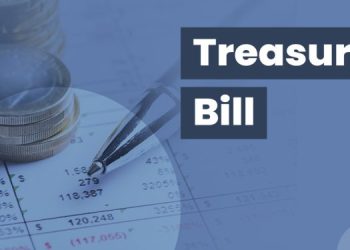The Government of Ghana has successfully made a $349.52 million payment toward its Eurobond debt service obligations, bringing the country fully up to date on all scheduled Eurobond repayments for 2025.
The payment, executed through the Bank of Ghana, was confirmed in a statement released by the Ministry of Finance.
This latest installment forms part of Ghana’s post-restructuring debt servicing programme following the conclusion of its Eurobond restructuring process in October 2024.
The Ministry noted that the cumulative amount paid so far stands at $1.174 billion, signalling strong commitment to regaining market confidence and reinforcing macroeconomic stability.
Breakdown of payments Since 2024
According to the Ministry of Finance, Ghana’s Eurobond debt servicing since the restructuring agreement includes:
$475.60 million paid in October 2024
$349.52 million paid in January 2025
$349.52 million paid in June 2025
These timely payments reflect Ghana’s return to fiscal discipline after securing debt relief and restructuring agreements with international bondholders last year.
The Ministry emphasised that all 2025 Eurobond obligations have now been fulfilled on schedule, reinforcing Ghana’s reliability in honouring external debt.
Positive outlook for ratings and economic recovery
The Finance Ministry expects the prompt settlement of Eurobond dues to significantly enhance Ghana’s sovereign credit profile and influence credit ratings trajectory positively in the months ahead. It also anticipates a boost in investor confidence, particularly among holders of Ghana’s external debt instruments.
“Timely fulfillment of these obligations demonstrates sustained discipline in debt servicing and our unwavering commitment to macroeconomic recovery,” the Ministry said.
As Ghana continues its IMF-backed economic reform programme, timely debt servicing is expected to play a critical role in unlocking access to capital markets in the medium term.
2026 Projections
The Ministry noted that the Eurobond payments were aligned with the Bank of Ghana’s reserves and liquidity management strategy, meaning the disbursement is not expected to destabilize the foreign exchange market.
Rather, the payment plan was factored into the central bank’s broader reserve management outlook, supporting stability in the cedi against major trading currencies.
Looking ahead, Ghana faces a total Eurobond debt service obligation of $1.409 billion in 2026.
However, the Ministry reaffirmed the government’s commitment to prudent debt management, engagement with external creditors, and ensuring macroeconomic stability as it continues implementing key structural reforms.
Strong signal to credit markets
This third Eurobond payment within a year sends a strong message to international investors and rating agencies that Ghana is determined to meet its restructured debt terms.
It is also an important signal to multilateral partners, including the International Monetary Fund, that Ghana is staying the course on its recovery path.
As economic conditions gradually stabilize, the Finance Ministry reiterated that the government would continue “constructive engagement with external creditors and development partners” to maintain credibility and sustain access to concessional and commercial financing.













